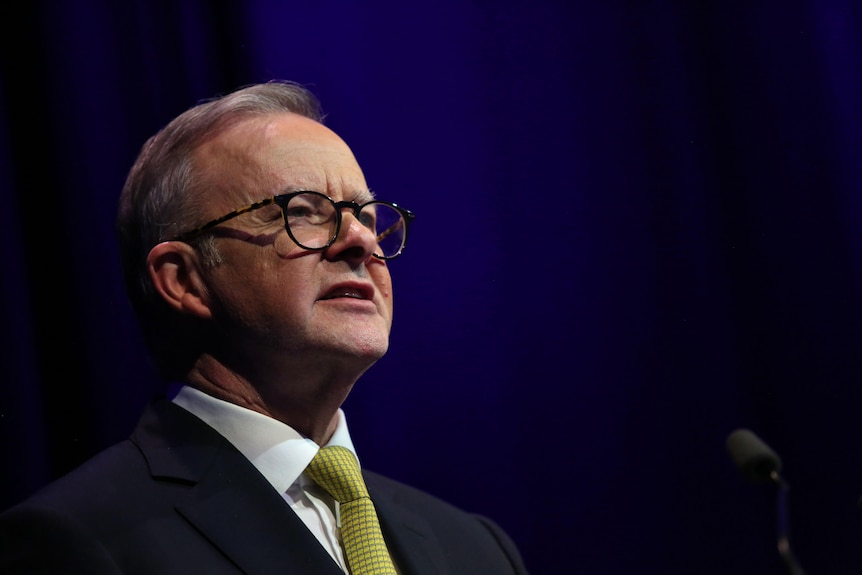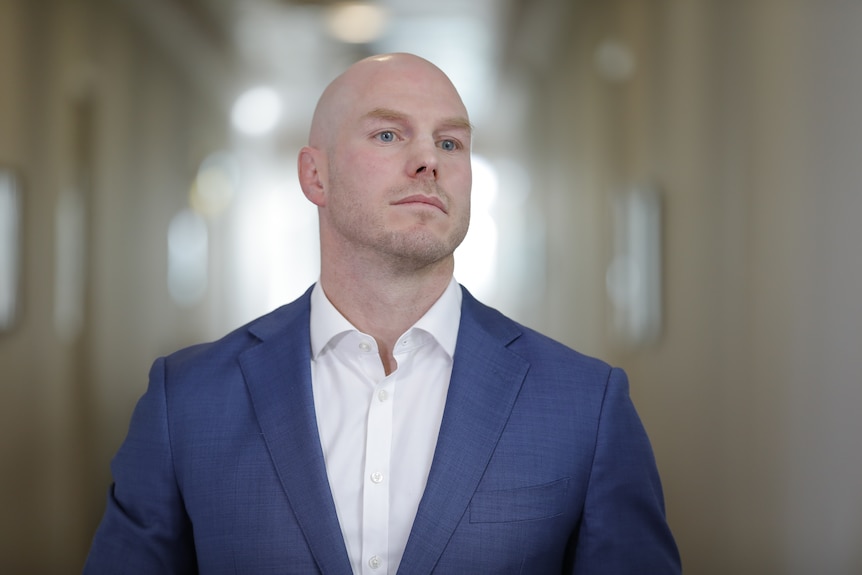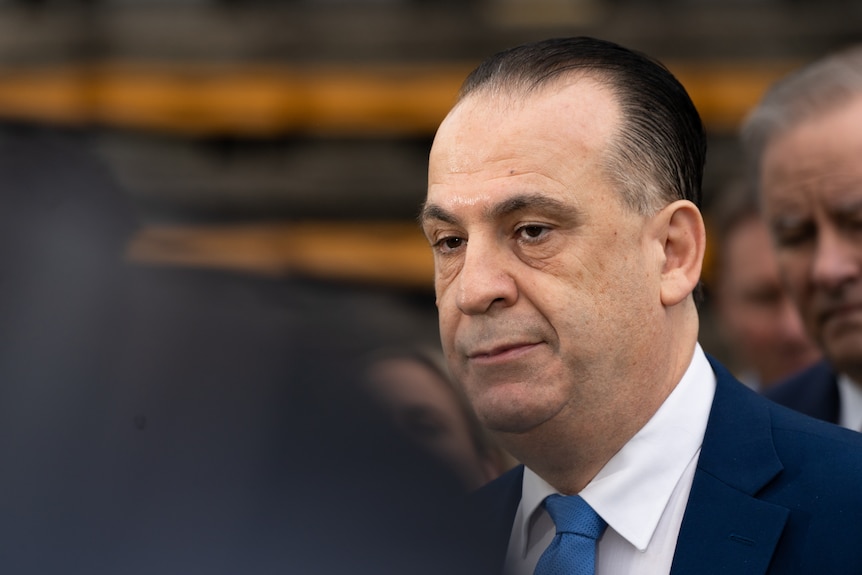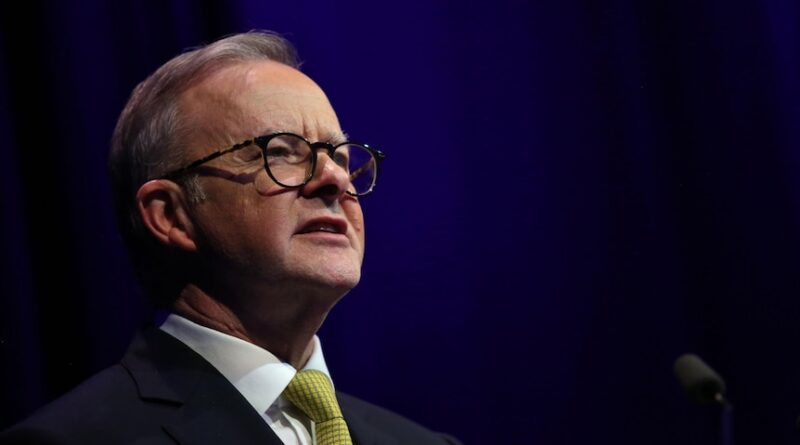A strange amount of gambling has entered our argument, and no one knows where it came from
When the prime minister rose during question time last month to answer a question from Independent MP Zali Steggall about protecting children from the dangers of gambling, she gave an answer that surprised experts and advocates.
After claiming his government had done more to tackle dangerous gambling than any other Australian government, Anthony Albanese surprisingly brought the lottery into the debate. and part of his reasons for avoiding a general ban on gambling advertising.
He said: “We know, when we look at where dangerous gambling occurs, about 70 percent of that dangerous gambling is actually poker machines.
“More, or about 15 percent, off the top of my head — that’s the number — is from lotteries and lottos and those tickets.
“I have yet to see anyone stand up to this position and advocate a complete ban on all lottery advertising and lotto tickets.”

Anthony Albanese brought the lottery into the debate as part of his arguments for avoiding a blanket ban on gambling advertising. (Credit: James Alcock)
MPs sitting on the parliamentary inquiry into the dangers of online gambling, chaired by Deputy Peta Murphy, must have been tearing their hair out during the debate.
For months they gathered and sifted through the evidence, rejecting industry contact points while doing their best to find the right policies that would reduce harm to gambling addicts. and their families.
A cross-party committee had unanimously recommended a ban on all gambling advertising among 30 other proposals, including banning incentives and creating a national regulator, and now the prime minister was he said about the lottery.
Those committee members would be forgiven for thinking the prime minister had not read their report, You Win Some, You Lose More.
Where do the numbers come from?
Samantha Thomas, who is a professor of public health at Deakin University, and has been researching the dangers of gambling and advertising for more than a decade, found the prime minister’s words disappointing. and was suspected to have originated in order to fight the ban.
“Many of us immediately looked for those numbers, and we couldn’t find them from any publicly available source,” he says.
Professor Thomas, who has emphasized the dangers of gambling caused by habitual gambling among children, sought more information.
He says: “I wrote to the Department of Communications asking for clarification as to where those numbers come from and I did not receive an answer.
The figures also worried independent ACT senator David Pocock, who worried the prime minister was getting more information from his own interests than experts.
This week the former Wallaby manager succeeded in making a motion in the Senate calling on the prime minister to produce any documents that support his allegations about the harm caused by the lottery.
On Thursday morning, the prime minister, Richard Marles, responded saying: “I am advised that the Prime Minister was relying on the recollection of published information and that there are no documents or materials with the Prime Minister or his office.”
Senator Pocock was not so impressed.

ACT Senator David Pocock was concerned the information was coming from vested interests and not experts. (ABC News: Ian Cutmore)
“It is a fact that the prime minister has said that he is still ‘relying on the recollection of published articles’ when the experts I spoke to say that there are no such published articles.
What “printed materials” are, in terms of risks compared to scratch cards and Wednesday night Lotto dreams compared to the business practices of the sports betting industry, remains a mystery.
However, Senator Pocock believes the figures quoted by the prime minister are strikingly similar to those made by Peter V’landys, one of the country’s most powerful sports executives and a man Mr Albanese a invited to the White House state dinner with the President of the United States Joe. Biden last October.
“The only place where the numbers mentioned by the prime minister are mentioned is the opinion of Peter V’landys, the person who runs two of the most profitable gambling organizations and who is fighting against the ban on gambling advertising. ,” said Senator Pocock. .
In an article published in Nine newspapers, Mr V’landys, who is chairman of the Australian Rugby League Commission and chief executive of NSW Racing, praised the Albanian government for looking at the facts rather than what he called “super descriptive words. theory” about gambling advertising.
According to the article, “V’landys argued that independent statistics showed that out of 100 people who sought help on a problem gambling line, 70 were caused by poker machines, 15 due to lotteries, eight due to racing, four due to games and three due to casinos”.
The ABC contacted the NRL’s news agency to ask where these so-called independents are coming from. Mr V’landys did not answer.
There is another irony in this whole debate about the perceived dangers of lotteries. The minister responsible for bringing any kind of advertising ban last year dismissed the concerns of this popular form of gambling, contradicting the prime minister’s comments in parliament.
When Communications Minister Michelle Rowland introduced the credit card ban on online gambling in April last year, she dismissed concerns about the risks associated with lotteries, exempting them from the ban because, as she said, they they were “low risk”.

Peter V’landys reportedly described the WA club’s request as “ball-ball” and “disrespectful”. (ABC News: Keana Naughton)
When the Australian Gambling Statistics (AGS) for 2022/23 were released last month, official government figures showed that lottery costs were less than half of total gambling losses .
AGS data showed Australians lost $31.5 billion to gambling that year – the highest in the world. Of that figure, $15.8 billion came from pokies, $8.4 billion came from betting (legal betting on sports, races and other approved events), while the money spent lotteries were $3.1 billion.
Although the AGS figures measure losses across the country, not risk, you’re less likely to hear stories of gambling misfortunes associated with the lottery.
Stories of gambling scams, such as that of the Gurney brothers, who told 7.30 they lost nearly $10 million in their family business to a robbery gambling, are usually associated with slot machines or poker, not buying lottery tickets.
Stories of gambling-related suicides, such as “Kate”, who told Radio National Breakfast that her brother was “beaten to death” by gambling syndicates after he quit gambling of money, and will not be associated with the lottery.
Loading
Unsourced statistics have been used before
It is not the first time that unsourced statistics have entered the public debate on how the Albanian government should respond to a parliamentary report on the dangers of online gambling issued 15 months ago .
Kai Cantwell, chief executive of Responsible Wagering Australia (RWA), a travel group representing six of Australia’s biggest betting firms, told Radio National Breakfast that any ban on blanket advertising on the site would would risk “driving Australian consumers to an illegal shore. suppliers”.
Mr Cantwell said that in Norway “the illegal market is now 66 per cent of the total market”.
When Radio National Breakfast contacted RWA, asking for the source of these figures, none was provided.
Stein Langberget, special adviser on regulatory affairs at Norsk Tipping – the Norwegian government alone – said those figures were not true and that only 6 percent of the market was outside the country.
After writing to Ms Rowland, Professor Thomas was able to secure a meeting with the minister and explained why, based on his research, he believed a blanket ban on advertising would reduce harm to children. But he says it is disappointing that the prime minister seems to be relying on news that is not based on verified statistics.
He says: “The evolution of the gambling industry is now a matter of public interest.
“There is widespread public concern about the impact of the gambling industry’s advertising on children, and the prime minister has a responsibility to ensure that he properly represents independent information on this issue. “
Professor Thomas’s views were supported by Senator Pocock.
He said: “As a leader of our nation, I urge the prime minister to cite the facts about the dangers of gambling, such as those contained in Peta Murphy’s recent, well-researched, comprehensive report on the dangers of gambling. of money.
The figures in the latest AGS report are clear. Australia has a gambling problem. We are the biggest losers in the world and the losses are increasing.
The Prime Minister may be right when he says he has done more to deal with the issue than previous governments, but many in his party room are still frustrated that he has yet to formally respond to the inquiry. he is their favorite colleague.
For those in Labor who want the prime minister to challenge the power of the lobby groups, they will hope that his speech will begin to sound more like Peta Murphy, and less like Peter V’landys.
#strange #amount #gambling #entered #argument
